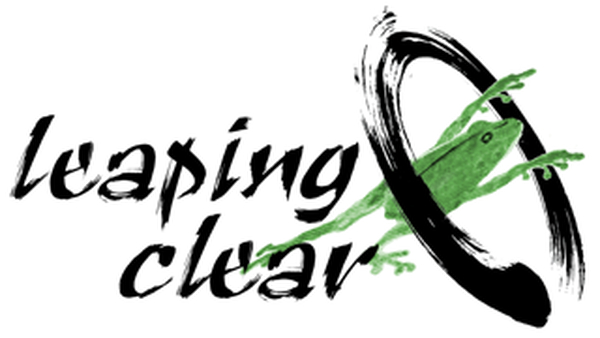Jane Hirshfield
Description
Humans: beings directional,
symmetrical.
With left and right hands,
left and right feet,
ears that hear lullabies
from one side or the other,
nostrils that know fear or food
from one side or the other.
Beings who sneeze
while following a trail
through wet woods
to whose asters and mosses
two eyes bring stereoscopic depth.
Sometimes, it’s true, the ears mishear:
death.
Sometimes the feet’s direction is only away.
Sometimes the hands misunderstand their task.
They tremble.
They ask their wrists: This?
Fingers with such sensitive nerve ends,
such solicitude holding a chisel or cello,
they thought they were meant to inflict only beauty and kindness.
Falcon
Incapable of betrayal: a tree.
Incapable of holding a secret: a stone.
Without contempt for self or other:
an ant, a bee.
Today I and the unhooded bird
that sits on my head
are looking in different directions,
I into the blurring past, he into the blurring future.
How many other pasts and futures,
between and around us, we miss.
Incapable of ungenerosity: grass;
cut, it simply keeps growing.
Without obligation: mosquitoes.
How close to human
must the breathed-in air come
before it develops a sense of shame or humor?
Each day the falcon’s view a little clearer.
Advice to Myself
The computer file
of which
I have no recollection
is labeled “advice to myself”
I click it open
look
scroll further down
the screen stays backlit and empty
thus I meet myself again
hopeful and useless
a mystery
precisely as I must
have done
on August 19, 2021, 11:08 a.m.
Lure
I waited though wanting nothing,
then waited longer.
As if by that I might
become again
the carved and painted lure—
Its two iridescent eyes that stay always open,
its stippled gold sides, deep orange back,
red threads attached at the gills.
I hummed with its three-pronged shine
of fish who are sweet and fat to the birds above them.
I hummed with its three injured notes to the fish below.
To all the blue-winged, handless distances
and all my blue-finned, handless lives,
I hummed
in borrowed Swedish and the iron-hiding slip of gleam—
The great strangeness still may come, even for you.
Day Beginning with Seeing the International Space Station and a Full Moon Over the Gulf of Mexico and All Its Invisible Fishes
None of this had to happen.
Not Florida. Not the ibis’s beak. Not water
Not the horseshoe crab’s empty body and not the living starfish.
Evolution might have turned left at the corner and gone down another street entirely.
The asteroid might have missed.
The seams of limestone need not have been susceptible to sand and mangroves.
The hips of one man and the hips of another might have stood beside
each other on a bus in Aleppo and recognized themselves as long-lost brothers.
The key could have broken off in the lock and the nail-can refused its lid.
I might have been the fish the brown pelican swallowed.
You might have been the way the moon kept not setting long after we thought it would,
long after the sun was catching inside the low wave curls coming in
at a certain angle. The light might not have been eaten again by its moving.
If the unbearable were not weightless we might yet buckle under the grief
of what hasn’t changed yet. Across the world a man pulls a woman from the water
from which the leapt-from overfilled boat has entirely vanished.
From the water pulls one child, another.
Both are living and both will continue to live.
This did not have to happen. No part of this had to happen.
Jane Hirshfield
I have been sitting shikantaza zazen – “just sitting” – in one form or another since a high school anthropology class was taken to the newly opened nearby New York Zen Center in 1968. I began to practice Soto Zen more intensively in 1974, including three years of monastic practice at Tassajara Zen Mountain Center, and received lay ordination in 1979. I’ve also been, then and since, “just cooking,” “just walking,” “just reading,” “just writing,” “just shopping,” “just looking around,” just living. This looks a lot like every other life, and is. Nothing extra or separate. And yet, as the 18th -century haiku poet Issa wrote, and yet. For this and-yet life of Zen practice and poetry, I am grateful.
Jane Hirshfield is a former Chancellor of the Academy of American Poets, and considered one of American poetry's central spokespersons for concerns of the biosphere. She is the author of nine collections of poetry, including Ledger (2020), The Beauty (2015), long-listed for the National Book Award, and Given Sugar, Given Salt (2001), a finalist for the National Book Critics Circle Award. She has also written two now-classic books of essays on the deep life of poetry (and human beings), Nine Gates (1997) and Ten Windows (2015), and edited and co-translated four books collecting the work of world poets from the deep past, including Women in Praise of the Sacred: 43 Centuries of Spiritual Poetry by Women (1994). Other honors include fellowships from the Guggenheim and Rockefeller foundations, the Academy of American Poets, and the National Endowment for the Arts. Her work appears in The New Yorker, The Atlantic, The New York Times, The TLS, Poetry, Tricycle, Orion, and ten editions of The Best American Poetry. In 2019, she was elected into the American Academy of Arts & Sciences.
All poems above from Ledger (NY: Knopf, 2020), whose paperback is appearing September 2021; used by permission of Jane Hirshfield, all rights reserved.
More on Jane Hirshfield’s work can be found on our Links page.

